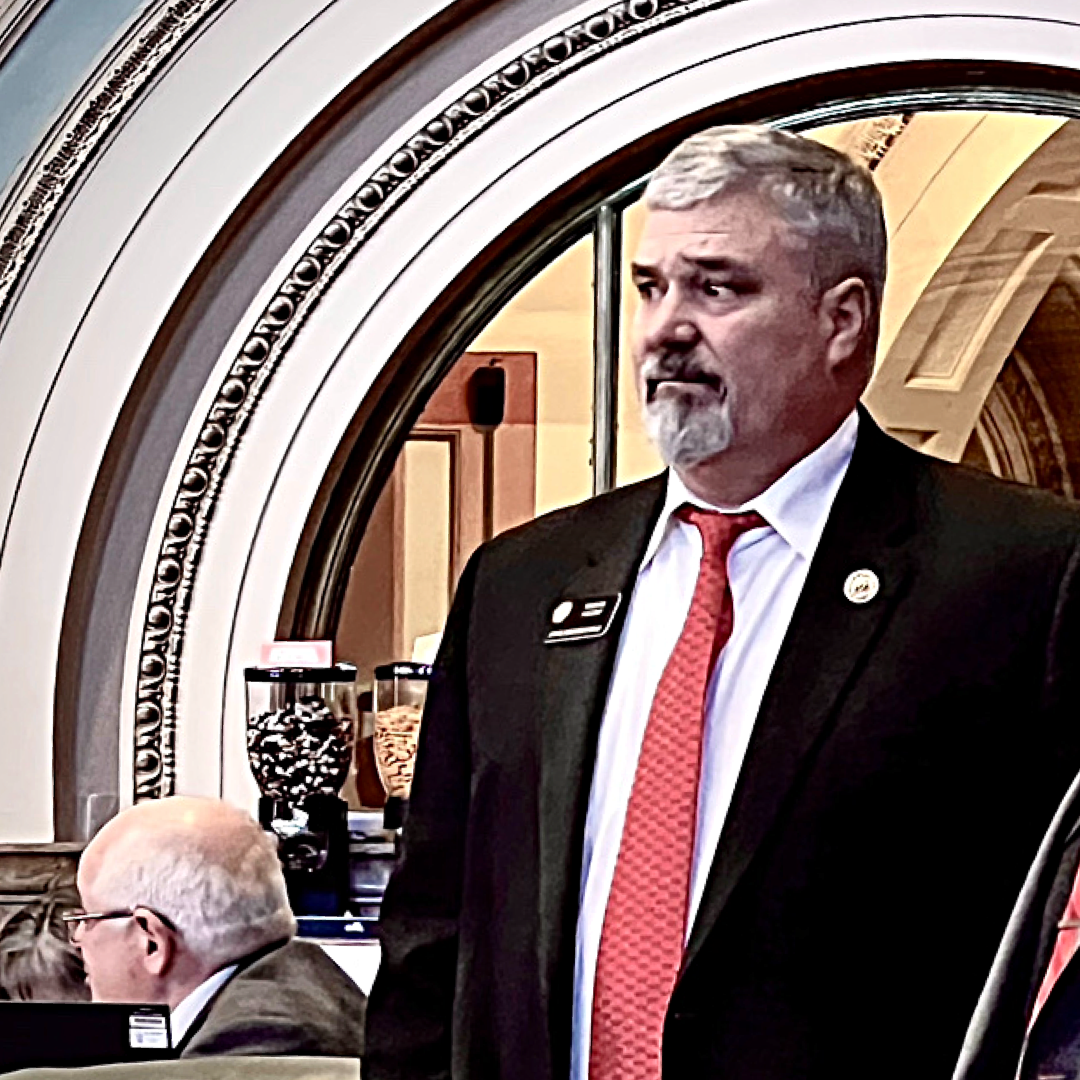The scramble to replace Ken Buck in Colorado's conservative CD4 is heating up as Republican candidates vie for the highly coveted seat.
Rep. Ken Buck recently announced that he will not seek a sixth term in U.S. Congress, sparking a frenzy of political whispers, activity, fundraising and reshuffling the state's 2024 political calendar.
The reliably Republican district, which covers roughly the eastern half of Colorado, has attracted the attention of four GOP contenders so far, with more expected to throw their hats into the ring in the coming months.
Most recently announced state Rep, Richard Holtorf (R Akron)
The four to announce their candidacy so far are nonprofit head Deborah Flora, a former talk radio host who ran last year for the U.S. Senate, state Rep. Richard Holtorf, R-Akron, Weld County Council member Trent Leisy, and first-time candidate Justin Schrieber.
Other Republicans rumored to be considering runs include Logan County Commissioner Jerry Sonnenberg, a former state lawmaker; House Minority Leader Mike Lynch of Wellington; former state Sen. Tom Wiens of Castle Rock; former House Minority Leader Patrick Neville of Castle Rock; Douglas County commissioners Abe Laydon; former University of Colorado Regent Heidi Ganahl; former 18th Judicial District Attorney George Brauchler; and, former Fort Collins City Councilman Gino Campana.
For the Democratic party, who have little chance of flipping the seat, the crowded GOP primary is a welcome distraction from their own internal tensions and struggles. The party sees an opportunity to portray their Republican rivals as "too extreme" for Colorado, a tactic that has worked in the past.
While the district has been solidly Republican for decades, its boundaries were recently redrawn, making it even more favorable for GOP candidates. According to a recent analysis, the district's voters have favored Republican candidates by a wide margin in recent statewide elections, and it is considered the most Republican district in the state.
Despite losing Colorado by 13.5 points to Democratic candidate Joe Biden, Republican nominee Donald Trump had a strong showing in the 4th congressional district, carrying it by the largest margin in the state with a lead of 18.6 points. Trump also had victories in the 5th district with a 10.1-point lead and in the 3rd district with an 8.3-point margin. In contrast, Biden emerged as the winner in the remaining districts.
The stakes are high for both parties as the 4th CD has been a springboard for politicians to move on to higher office.
In fact, every Republican senator to be initially elected in Colorado since 1990 has come from the 4th CD. With the GOP struggling in statewide races and holding record-low numbers in the state legislature, winning this seat is crucial for the party's future success.
The crowded primary also provides an opportunity for Republicans to showcase their diversity and unity as they search for a new identity and try to appeal to a changing electorate. With the district's population center shifting to more suburban areas, the race is expected to be competitive and closely watched by political analysts across the country.
Republicans have four months until the first precinct caucuses in March and nearly eight months to campaign before next year's June 25 primary to make their case to voters.
READ MORE:
The last time a vacancy opened up in the district, in 2014, then-District Attorney Ken Buck only had days to make the ballot and ended up winning the primary and all subsequent general elections. This time around, candidates have more time to campaign and strategize, making the race even more unpredictable.
One thing is clear, the race to replace Ken Buck in Colorado's 4th Congressional District will be a highly contested and closely watched battle for political control in the state.

